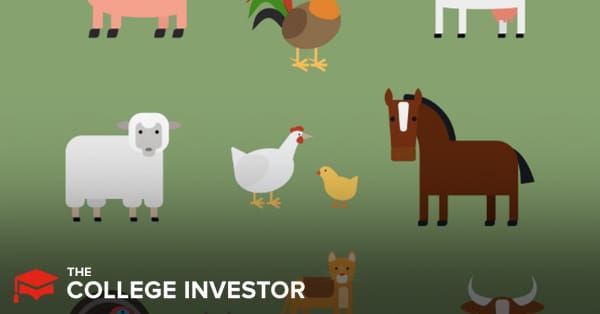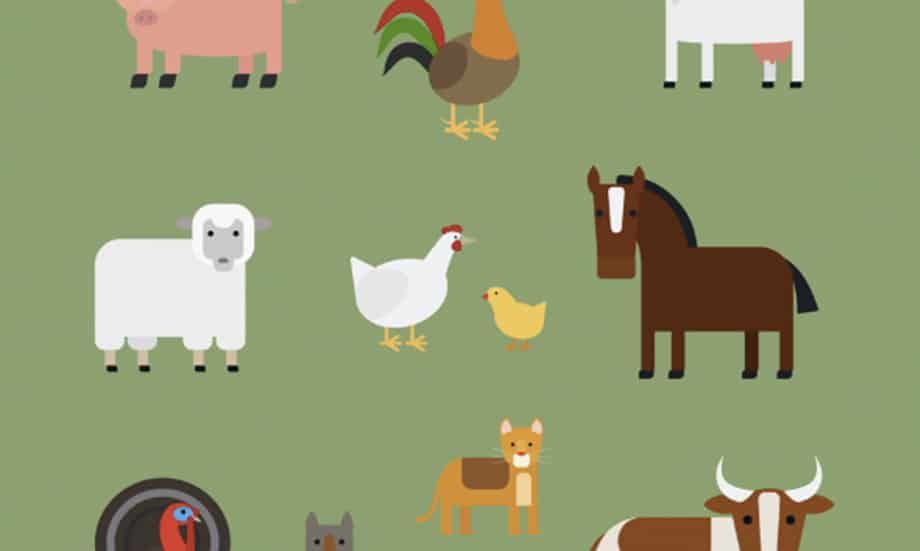
Does your knowledge of farming start and end with Old MacDonald? Perhaps you live in an urban condo and work in a high rise. If so, you may think that farmland investing is not for people like you.
However, farmland investing offers a legitimate alternative investment asset class that could help you grow your wealth. But before you go looking for deals at the local county fair, you may want to consider how you can enlist experts to help you profit from farmland investing.
Here’s what you need to know about the asset class.
This article is sponsored by FarmTogether, an innovative way to invest in farmland. Check out FarmTogether here if the idea of investing in farmland excites you >>
Is Farmland Really An Investment?
If you’ve driven through Nebraska, Iowa, the Dakotas or any big agricultural state, you’ve seen miles and miles of farms (not to mention, some under-appreciated beauty). Chances are you’ve not seen many “For-Sale” signs during your drive. So are these acres of fertile soil really available for investors?
The answer is surprisingly yes. In 1986, Warren Buffett famously purchased a 400-acre farm in Nebraska, and it grew in value despite several bad crop years. However, the asset class has typically been closed off to all but farmers, people in the agricultural field, and a few institutional investors like Buffett.
However, companies such as FarmTogether are making it easier for everyday investors to buy farmland for investing in purposes.
How Does Farmland Compare To Other Types Of Real Estate?
As an investment, farmland is best characterized as a type of real estate investment. Like “traditional” real estate, farmland can earn money in two ways.
First, farmland can be leased to farmers who will use the land to grow crops. Investors can earn money from ongoing lease payments. Second, the underlying value of the land may increase over time. Investors may earn additional money if they choose to sell the land.
As with real estate, the management of farmland can be very active or passive. For example, if you personally own 200 acres in Iowa, you could use the land to grow your own crops. You could also rent that land out to a corn farmer who would then use the land to grow crops. Finally, you could pay a management company to rent out the land for you.
Historically, investors needed to be knowledgeable enough about farmland to handpick a good deal. They also needed specialized knowledge to manage the land appropriately. Today, that is starting to change. There are a few publicly traded farmland REITs (Real Estate Investment Trusts) that allow typical investors to buy shares of a farmland portfolio. There are also companies like FarmTogether which offer direct, passive ownership opportunities.
What Are The Risks?
There are a few major risks associated with investing in farmland. The first risk is liquidity. If you own physical farmland, the land cannot easily be sold except by enlisting the help of a broker. FarmTogether and other private deal companies are similarly illiquid investments. The shares of the investment are generally liquid only once the company’s exit strategy is confirmed (for example, it sells the farm). However, the income received from these farmlands is in the form of cash and is obviously very liquid.
Note: FarmTogether is working to bring a secondary market to its platform later this year.
Publicly traded farmland ETFs get rid of the liquidity problem by being easy to buy and sell through online brokers.
The next risk associated with farmland is a knowledge problem. Unless you know the asset class well, it can be tough to buy land at a good price. If you overpay, you may be stuck with an underperforming asset for a long time. Those who are closely connected to the agricultural sector may mitigate this risk by only buying specific land that meets their personal criteria. Generally, publicly-traded ETFs get around this issue by having many buyers and sellers. In general, the imperfect knowledge of many buyers and sellers tends to lead to a reasonable price for the shares.
FarmTogether mitigates risks by partnering with agricultural industry experts and farmland management experts. By partnering, FarmTogether gains an understanding of the myriad risks associated with agriculture (such as lease prices, crop prices, crop types, water rights and more), and can bake those costs into deals. Since the company engages in deep underwriting and lots of due diligence, investors gain many of the advantages of expert insiders.
What Role Can Farmland Play In Your Portfolio?
As with all “alternative investments” including real estate, farmland should play the role of diversifier in your portfolio. Unless you’re truly a farming insider, you don’t want your entire net worth tied up in farmland.
However, farmland can be an asset that class that helps to smooth out volatility in performance. Unlike publicly-traded REITs that tend to have similar dips and spikes as stocks, the Farmland Index tends to move differently than stocks.
Additionally, Farmland has historically yielded good returns. Between 2008 and 2018 the S&P 500 returned a 13.1% annualized return. The farmland index returned 11.2% annualized returns during the same time period.
Also, between Q4 2007 - Q1 2010, farmland didn't actually produce any negative returns. In fact, since 1991, farmland has only had 1 negative quarter (2001 Q1) where it delivered -0.01%.
Stocks dropped 52% during the 2008 crisis, whereas farmland showed growth throughout all of 2008. According to the NCRIEF Farmland Property Index, between Q4 2007 and Q1 2010, farmland continued to produce positive returns every quarter. In the fourth quarter of 2008 specifically, the worst quarter for U.S. stocks during the financial crisis, farmland returned 7.33%.
When Does It Make Sense To Invest In Farmland?
Unless you’re a farmer looking to invest in your business, it probably doesn’t make sense to buy a farm. However, a farmland investment could be a high-quality alternative investment in your portfolio. Once your investment portfolio starts to approach the mid-five figures or low six figures, diversification becomes very important. At that point, you may want to consider your asset allocation strategy, including alternative investments.
If it makes sense to add farmland to your portfolio, consider FarmTogether for your first farmland investment. It allows you to invest in direct farmland deals that are managed through a 3rd party. You get to enjoy the advantages of expert agricultural investment knowledge without having to drive through cornfields to find deals. The company doesn’t always have offerings available, because deals must meet the company’s strict guidelines.
You will need to be an accredited investor to invest through FarmTogether. That means you need to have at least $1 million in net worth (outside of your home), earn $300,000 as a married couple or $200,000 as an individual. If you don’t meet those requirements, a farmland ETF could be a better option to get started.

Robert Farrington is America’s Millennial Money Expert® and America’s Student Loan Debt Expert™, and the founder of The College Investor, a personal finance site dedicated to helping millennials escape student loan debt to start investing and building wealth for the future. You can learn more about him on the About Page or on his personal site RobertFarrington.com.
He regularly writes about investing, student loan debt, and general personal finance topics geared toward anyone wanting to earn more, get out of debt, and start building wealth for the future.
He has been quoted in major publications, including the New York Times, Wall Street Journal, Washington Post, ABC, NBC, Today, and more. He is also a regular contributor to Forbes.
Editor: Clint Proctor Reviewed by: Chris Muller
